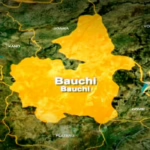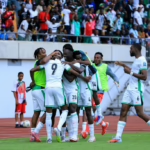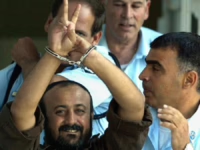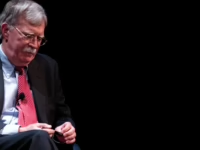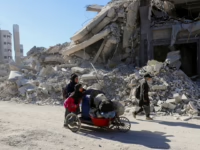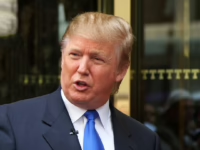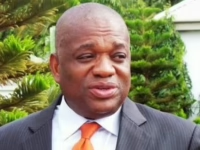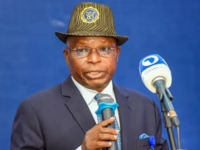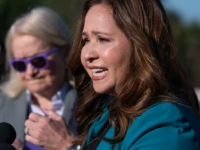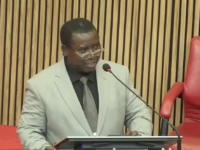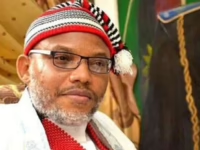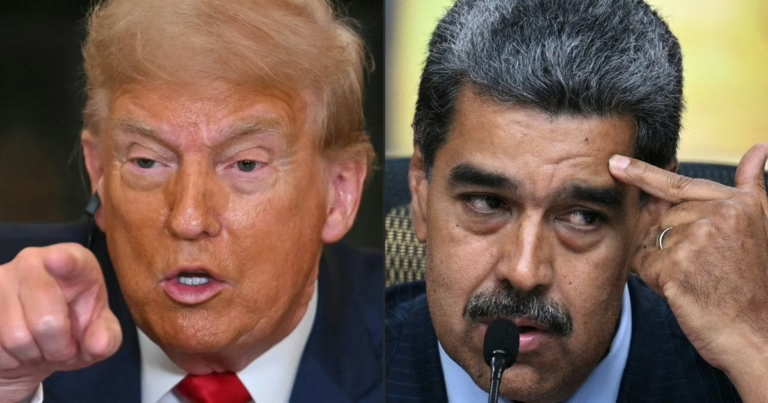On Wednesday, President Donald Trump publicly confirmed that he has granted the CIA authorization to conduct covert operations within Venezuela.
This directive was initially reported by The New York Times, citing anonymous US officials who revealed that the administration’s primary objective is to depose Venezuelan President Nicolás Maduro.
Recommended Stories
list of 4 itemsend of list
In addition, Trump indicated that his administration is contemplating a potential ground invasion of Venezuela, as tensions have sharply intensified following several US attacks on Venezuelan vessels in the Caribbean Sea and a recent deployment of US troops to the region.
In response, Maduro appeared on national television Wednesday evening, calling for calm and warning against any further escalation.
“No to regime change reminiscent of the failed wars in Afghanistan, Iraq, and Libya… No to CIA-led coups… Latin America neither desires nor requires such interventions and firmly rejects them,” Maduro declared following Trump’s announcement.
What exactly is Trump planning? Are these actions lawful? How has Venezuela responded, and what lessons does history offer regarding CIA covert operations in Latin America?
Details of Trump’s Announcement
During a White House press briefing, a reporter asked, “Why did you authorize the CIA to operate in Venezuela?”
Trump replied, “There are two main reasons.”
“First, Venezuela has been releasing prisoners who then enter the United States.”
“Second, there is a significant influx of drugs coming from Venezuela, much of it transported by sea. We’ve been intercepting these shipments, and we intend to stop them by land as well,” he added.
When pressed on whether the CIA had the authority to remove Maduro, Trump avoided a direct answer, neither confirming nor denying regime change plans.
“I’m not going to respond to that question… It’s not an appropriate question for me to answer. But I can say Venezuela is under pressure,” he stated.
US Military Actions to Date
The United States has executed at least five strikes targeting vessels in Venezuelan waters, accusing them of drug trafficking and resulting in 27 fatalities.
Trump confirmed the most recent strike occurred on Tuesday.
“Acting under my authority as commander-in-chief, the Secretary of Defense ordered a lethal strike this morning against a vessel linked to a Designated Terrorist Organization involved in narcotics trafficking near Venezuela’s coast,” Trump posted on his Truth Social account. He noted that six “male narcoterrorists” aboard the vessel were killed.
The initial strike took place on September 2, killing 11 individuals. Subsequent attacks on September 15 and 19 each resulted in three deaths, and a fourth strike on October 3 reportedly killed four people, according to US Defense Secretary Pete Hegseth.
Despite these claims, the Trump administration has yet to present concrete evidence that these vessels were transporting drugs destined for the US.
Presidential Authority and Legal Boundaries
Legal experts have expressed concerns that US strikes on Venezuelan boats may violate both international law and the US Constitution.
Any CIA or military operations on Venezuelan soil would further challenge the limits of presidential authority beyond maritime engagements.
Salvador Santino Regilme, associate professor at Leiden University, explained that the use of lethal force at sea must comply with the right to life and principles of necessity and proportionality in law enforcement.
“International agreements like UNCLOS and the 1988 UN Drug Trafficking Convention emphasize cooperation, boarding protocols, and consent at sea-not summary destruction. Any lethal strike should prompt an immediate, independent, and transparent investigation,” Regilme stated.
Constitutional attorney Bruce Fein was even more critical, asserting that “military action, except in self-defense against an actual attack, requires explicit congressional authorization. The recent strikes on alleged Venezuelan drug traffickers are unconstitutional.”
The 1973 War Powers Resolution mandates that the president seek Congressional approval before engaging in hostilities and notify Congress within 48 hours of initiating military action.
Fein emphasized that no such congressional vote has occurred to legitimize these strikes.
Earlier in his term, Trump designated Venezuelan drug cartels as foreign terrorist organizations, a move Fein described as “illegal” because it does not meet statutory criteria, which require the group to be foreign-based, involved in terrorism, and posing a threat to US citizens or national security.
Trump has repeatedly accused Maduro’s government of controlling these cartels, despite US intelligence agencies finding no evidence to support this claim.
Venezuela’s Response
Venezuela condemned the US actions as violations of international law and the United Nations Charter.
“The US aims to legitimize an operation to overthrow Venezuela’s government and seize control of the country’s resources,” the Venezuelan government stated.
Maduro also criticized CIA interventions worldwide, though he did not directly address Trump’s authorization of CIA operations in Venezuela.
Political analyst Carlos Pina suggested that Trump’s announcement might consolidate Maduro’s domestic support.
“Maduro reiterated his denunciation of US interference and reinforced the anti-colonial rhetoric common among leftist governments in the region,” Pina noted.
“Practically, this announcement will likely prompt the Venezuelan government to intensify internal surveillance and repression, potentially leading to human rights abuses if unchecked.”
CIA’s Track Record in Latin America
The CIA’s history in Latin America is marked by controversial covert operations aimed at influencing political outcomes, often supporting US-friendly regimes and undermining leftist governments.
During the Cold War, the agency orchestrated numerous interventions to depose democratically elected leaders perceived as socialist or communist.
Some notable examples include:
Guatemala in the 1950s
In 1954, the CIA backed a coup that ousted President Jacobo Árbenz, who had pursued land reforms threatening US corporate interests.
Operation PBSuccess involved training rebel forces led by Carlos Castillo Armas, who assumed power after the coup. This sparked a civil war lasting from 1960 to 1996 between government forces and leftist insurgents.
Cuba in the 1960s
Following Fidel Castro’s 1959 revolution, the CIA trained Cuban exiles to invade the island and overthrow Castro.
President John F. Kennedy approved the Bay of Pigs invasion in 1961, which ended in failure when Cuban forces repelled the attackers.
Bolivia in the 1960s
Between 1963 and 1964, the CIA covertly funded political factions in Bolivia, supporting a military coup that deposed President Víctor Paz Estenssoro and installed General René Barrientos.
Brazil in the 1960s
President João Goulart’s left-leaning reforms and ties with socialist countries prompted the CIA to back opposition groups, culminating in a 1964 military coup that established a pro-US dictatorship.
Ecuador in the 1960s
Concerned by President José Velasco Ibarra’s pro-Cuba stance, the CIA funneled support through labor organizations to spread anti-communist sentiment, influencing political upheavals and military coups aligned with US interests.
Chile in the 1970s
The CIA funded efforts to destabilize President Salvador Allende, who sought to nationalize US-owned copper mines.
This contributed to the 1973 military coup led by General Augusto Pinochet, whose brutal dictatorship lasted 17 years.
Operation Condor in the 1970s
Starting in 1975, the CIA supported a coalition of right-wing dictatorships in Argentina, Bolivia, Brazil, Chile, Uruguay, and Paraguay to suppress leftist opposition through coordinated intelligence sharing, kidnappings, and assassinations.
At least 97 people were killed under this transnational campaign of repression.
El Salvador in the 1980s
During the civil war, the US trained and equipped the Atlacatl Battalion, responsible for the 1981 massacre of approximately 1,000 civilians in El Mozote.
Panama in the 1990s
In 1989, the US launched Operation Just Cause to remove General Manuel Noriega, citing drug trafficking allegations, though the invasion’s human cost was downplayed.
Potential Implications for Venezuela and Latin America
According to analyst Carlos Pina, most Latin American nations have responded cautiously to Trump’s recent moves, with exceptions including Colombia under Gustavo Petro and members of the ALBA alliance such as Cuba, Nicaragua, Bolivia, Honduras, and some Caribbean states.
“Typically, such escalations would provoke strong regional backlash against the US, but many countries are hesitant following Maduro’s controversial re-election in July 2024,” Pina explained.
The July 2024 Venezuelan election was widely criticized for irregularities, with the Carter Center and a UN panel questioning its legitimacy. Nine Latin American countries called for independent review of the results.
Pina anticipates that some regional actors may attempt to mediate between Venezuela and the US to avoid conflict, though prospects for dialogue currently appear slim.
He predicts continued US pressure on Maduro to relinquish power peacefully, alongside increased military presence, while Maduro is expected to resist these demands.
A full-scale conflict would have far-reaching consequences across Latin America. Already, economic collapse and US sanctions have driven over 8 million Venezuelans to migrate since 2014, primarily to neighboring countries.
“An armed confrontation would likely trigger another massive migration wave, the scale of which is currently unpredictable,” Pina warned.


